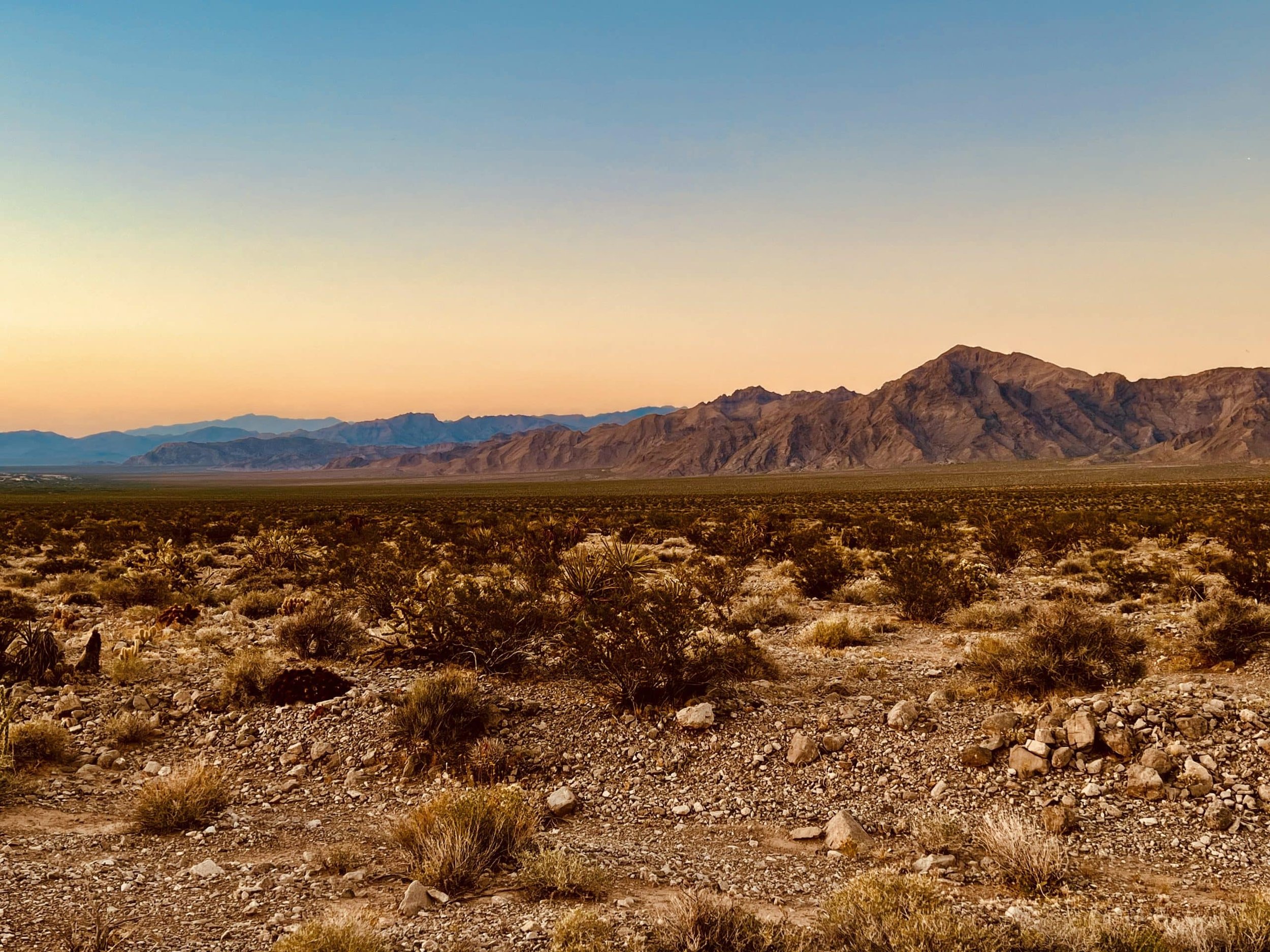
The Late Senator Harry Reid
The Reid Institute was founded with the support and in honor of the late U.S. Senator Harry Reid. Senator Reid had a deep respect and understanding of the importance of history in the Intermountain West and authored a history of his own unique hometown, Searchlight: The Camp That Didn't Fail (2007). The Senator was a tireless supporter of critical historic preservation projects in Nevada and the American West with a special interest in the relationship between history and environment on the public lands.
We had the privilege to work with the Senator and his staff for over twenty years researching and preserving sites like the Walking Box Ranch, the village of Goffs, California and the Mojave Road in the Mojave National Preserve, along with a range of sites and cultural landscapes that capture historic relationships between people and place in the Mojave Desert. The institute is dedicated to continuing this work using insights from environmental history, western history, historic preservation and public history in support of innovative southwestern history research initiatives.
Our Faculty
Andy Kirk,
Director
Professor of History at the UNLV, specializing in western, environmental, and public history.
Throughout my career I’ve worked to link scholarship and engagement and create research results that serve scholars and communities equally. My research, teaching, and field work focus on the intersections of cultural and environmental history in the American West. My book, Counterculture Green, explained the distinctly western environmentalism of the Whole Earth Catalog and the global appropriate technology movement. More recently, I explored the lived and environmental history of nuclear testing in my graphic history, Doom Towns (National Council on Public History 2017 Book Prize).
I’ve completed over thirty western National Register Nominations, and with my students, a wide range of western public lands resource studies, administrative histories and cultural landscape studies using insights from environmental and western history to help preserve hybrid landscapes once dismissed. These efforts were the subject of an article in the Western Historical Quarterly, “When Nature Becomes Culture” (37:4 2006). I was co-Principal Investigator on the Nevada Test Site Oral History Project and a member of the Department of the Interior, Manhattan Project National Historical Park Advisory Committee. I’m co-editor, with Flannery Burke, of The Modern American West series (University of Arizona Press), and co-author of the US history textbook, American Horizons (Oxford). In 2018, I won the Harry Reid Silver State Research Award for “Research endeavors that directly and positively affect the economic growth and development of the State of Nevada.”
Kirk’s research and public history activities have been featured in; New York Times (Sunday Featured Book Review, (12/9/2007), NYT Science Times (2/27/07 D1) & NYT (3/22/07, D1), PBS NewsHour, The Los Angeles Times, San Francisco Chronicle, Grey Room, Preservation Magazine, Public History News, Docomomo-US, Preservation Forum, The Discovery Channel—How Stuff Works, The Travel Channel, Orion Magazine, PBS American Experience, World Changing, Wired, Boing-Boing, Design Issues, The Chicago Tribune, The Museum of Modern Art, “Access to Tools Exhibit,” “West of Center” Exhibit Museum of Contemporary Art Denver, The Atlantic, Newsweek, London Review of Books, Washington Post, Ready Made, Plenty, Bloomsbury Review (Editors’ Favorite Books of 2008), History Network News, Reason Magazine, Enlightenment Next, Edutopia, Voice of America, & NPR.
Deirdre Clemente,
Associate Director
Associate Professor of History at UNLV, specializing in 20th century material culture, the history of the American fashion industry, and museum studies.
I am a historian of the twentieth-century, American garment industry and a costume curator. My work on has been featured in The New York Times, The Washington Post, The Wall Street Journal, The Guardian, and The Atlantic.
I came up reading my mother’s Vogue and skulking around thrift stores in Central Pennsylvania. I thought a lot about how and why we use clothes to create culture. Now, I teach graduates and undergraduates about museum studies, fashion history, and material culture.
An advocate for public history at the local regional and national level, I practice what I preach. At the Institute, we write grants, research and install museum exhibitions, and digitize local collections. I work alongside students as they catalog hundreds of filthy ranch tools. I solve the problem when there’s not enough contact paper for the display case. I step back when a collaborator asks a question, to give my students a chance to field the ball.
Perhaps the coolest thing about public history is that anyone can participate. Go to the museum and read the labels. Document your family’s immigration history. Dress up in colonial garb, if that’s your thing. The market isn’t cornered on public history. There is enough to go around.








